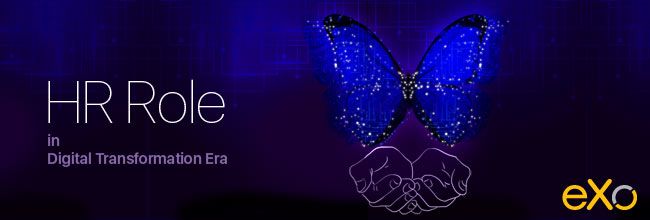Human Resources: The Keyplayers in the Digital Transformation
Digital transformation is a hype and constant topic these days.
Technology is deeply changing our society at all levels, flattening the world. We use digital tools to make and keep friends, date, stay informed, communicate, and shop, as well as to advertise ourselves, look for jobs, and evaluate potential opportunities. Access to information is easy to acquire, and a talented workforce is increasingly mobile and global.
As a consequence, a company’s overall success today directly derives from the quality of its workforce and corporate culture, giving a sustainable competitive advantage to the best human resources management teams.Technology also changes businesses from the inside.
In the past twenty years, software applications have expanded to every part of business. Starting with functional business applications, mostly developed in-house, the IT evolution moved to partly cross-functional systems — ERPs, CRMs, and such. All those applications and systems work in silos, obstructing information flows and collaboration pathways. As a result, the challenge of today’s enterprise IT lies in the collaborative unification of different systems in the context of an ever-increasing computing cost.So what about HR leaders in all of this? What would HR’s role be in the new digital era? What new skills will be necessary?
As David Ulrich states in his truly inspirational work, HR from the Outside In, HR needs to evolve from a mere administrative and supporting function to a true business stakeholder and enabler. The ability of the HR department to do so will directly impact a company’s chances to succeed against its competition.
Among the six areas of HR competence, identified in David Ulrich’s work, technology appears to be the weakest when it comes to the quality of execution, but it has the highest impact on business success. In other words, HR’s business value paradoxically lies with technology and being able to own modern IT evolution issues.
Why? Because technology in the enterprise already addresses and automates most of the functional issues, but it does so at the expense of efficient human interactions. Today, technology needs to center on the employee experience as a whole, connecting people to information and to each other, empowering individual and collaborative performances.
Technological centralization of business processes and information flows is a major business issue that cannot be fully addressed from a purely IT perspective. Such a transformation transcends departmental logic, requiring cooperation between several business owners and proper change management. As a consequence, HR leaders appear ideally placed to own such endeavors and move them forward.
As a provider of collaborative solutions for enterprise, whenever technology projects address the company as a whole and deal with knowledge management, information flow, or people connections, we should find HR in the front line. Strangely, we find that this is not always the case.
When it comes to digital transformation in an enterprise, there is often a void of business ownership. Projects are typically initiated by IT, while their ultimate success often lies with the company’s approach toward change management. HR leaders can and should take a strategic role in this transformation. Not only would HR cooperation help technological transformation, but it would also bring the HR to the business table as a truly strategic partner, rather than a mere support function.

